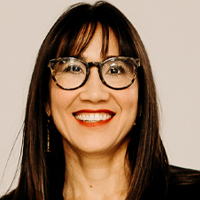
I recently met with a client who is establishing her estate planning documents. She’s in her early fifties, she’s single, she has no children, and she is an only child. As a physician, she is a high-income earner, and has already accumulated substantial assets.
Fortunately, she has other family members who can help fill in some of the agent roles such as power of attorney and executor. From a planning perspective, it also helps that she is charitably minded. She’s already established a donor-advised fund (DAF) as well as a scholarship fund in honor of her late parents. In our meeting, we addressed how she can incorporate her charitable wishes into her estate plan. She was considering naming charitable several beneficiaries directly in her will; I suggested she consider incorporating her donor-advised fund.
DAFs have been increasing in popularity for years, and particularly after the Tax Cuts and Jobs Act was enacted in 2017. This law doubled the standard deduction and lowered numerous itemized deductions. The result of this change was that smaller gifts would no longer realize any additional tax benefit. In order to realize a deduction, a more significant gift or number of gifts would need to be made within a calendar year.
How to Contribute
These conditions made DAFs a particularly timely planning tool. Donors tend to make more meaningful contributions, often pre-funding several years’ worth of gifts in one year in order to realize a tax benefit. For example, an individual who typically gives $3000 each year to charities wouldn’t be able to itemize, but likely could itemize by making $15,000 in contributions in one year instead.
Subscribe (Minimal 2024)
"*" indicates required fields
So it’s not surprising that much of the hoopla around DAFs is centered around the tax benefits.
Changes are Simple
What is discussed much less frequently is how useful DAFs are in estate planning. Consider the client who names charitable beneficiaries in their will; maybe you’ve had one of these clients before. If/when they wish to update these charitable beneficiaries, they need to contact their attorney, update their documents, and incur additional expenses. If they’ve named charitable beneficiaries on retirement accounts or insurance policies, they’ll need to update those accounts, too.
Additional Reading: Eight Reasons Why Older Clients Like Donor-Advised Funds
Now imagine that this client instead names their DAF as the charitable beneficiary in their will or on their retirement accounts. Now, when they wish to make changes to their charitable lineup, instead of having to request, update and process multiple documents and possibly pay attorney’s fees, they simply update ONE document. At no cost.
Looping in Future Generations
One more overlooked benefit is the ability to name a successor advisor, who will continue to make grant recommendations after the donor’s death. Some clients use the DAF as a mini family foundation; it’s a vehicle for opening up conversation about causes and issues, and can support giving through several generations. There’s no annual minimum distribution requirement at this time, so families may choose to take an endowment-like approach of preserving the initial contribution and using the gains to fund grant requests.
If your client wishes to name their DAF as a beneficiary or in their estate planning documents, be sure to obtain the proper language and possibly the tax ID. Review the language and the strategy with your client’s other professional advisors so that everyone is operating from the same playbook.
Karen Coyne, CFP, is the founder of Clarity Planning, an independent financial planning practice at Raymond James. She is also the podcast host of FRESH OFF THE VINE™, and loves to explore the myriad of ways that finances intersect with so many other aspects of our lives. She can be reached at karen.coyne@raymondjames.com. Clarity Planning offers investment advisory services through Raymond James Financial Services Advisors, Inc. Any opinions are those of Karen Coyne and not necessarily those of Raymond James.







